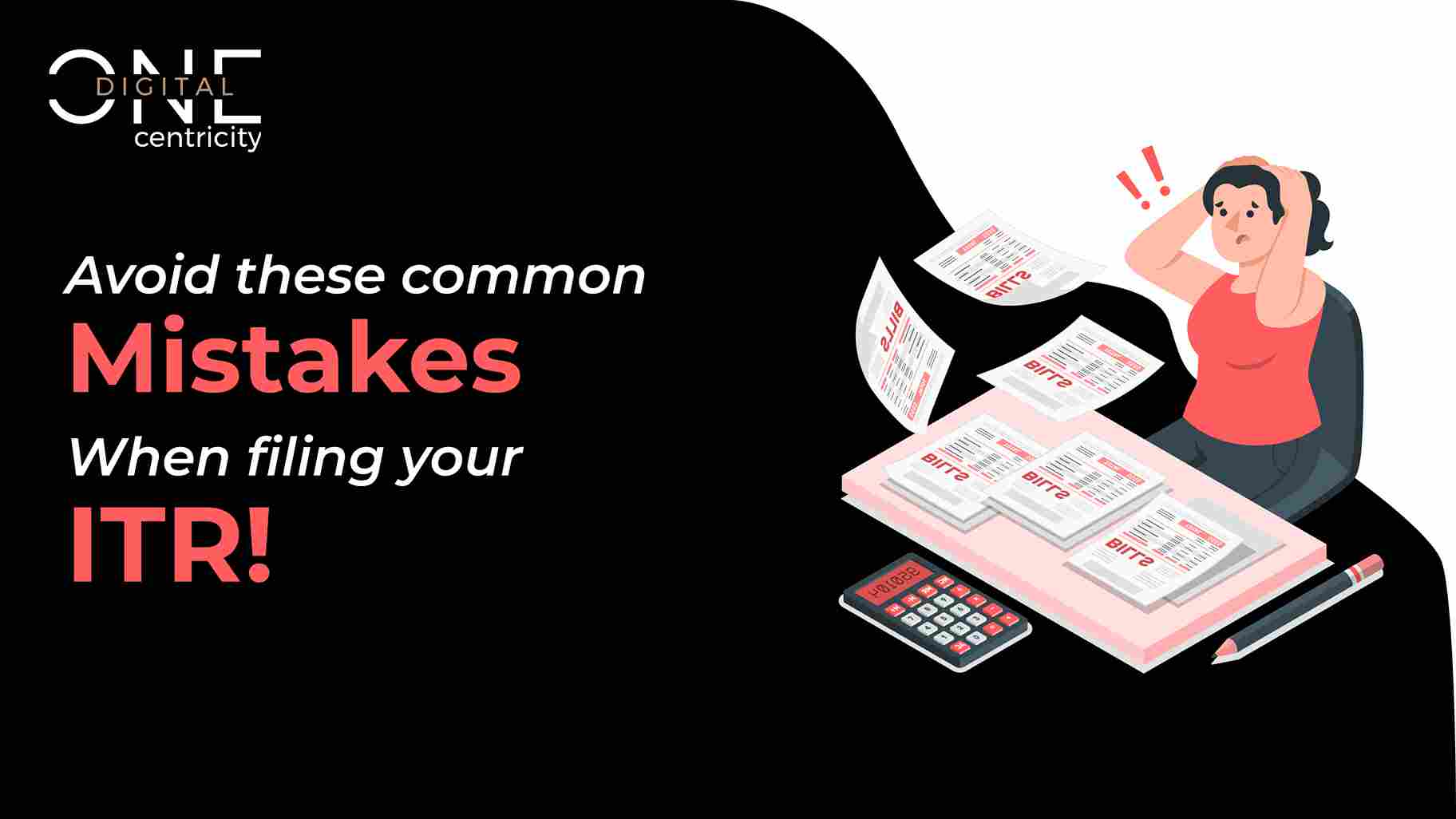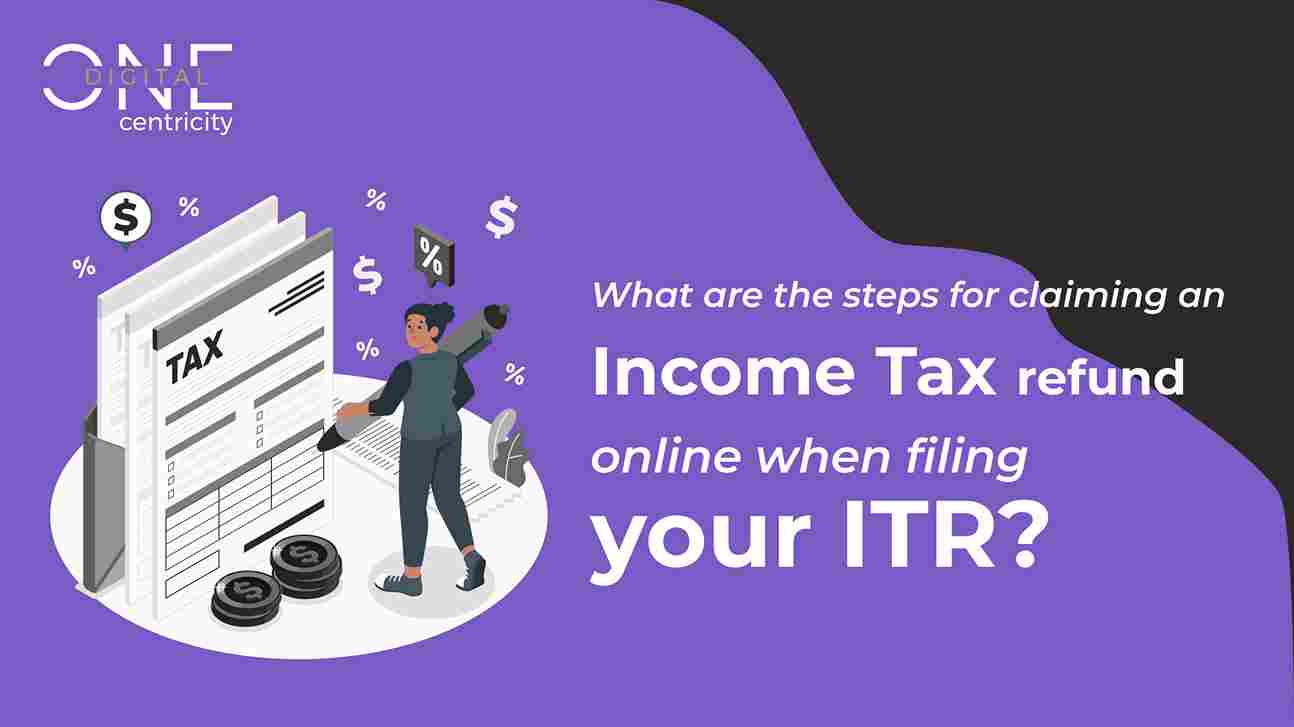Avoid these common mistakes when filing your ITR!
12th March 2024 | Author : Centricity

Here we are with yet another year & season of Tax filing!
Filing your Income Tax Return (ITR) can be a daunting task, especially if you're unfamiliar with the process or unaware of the common pitfalls. Last-moment filing of taxes is often prone to making mistakes.
“It’s okay to make a mistake, as long as you learn from them”
Making mistakes on your tax return can lead to delays, penalties, or even audits. To ensure a smooth and accurate filing experience, here are some common mistakes to avoid!

- Failing to Report All Income
Many taxpayers forget to report all their income, especially income from freelance work, rental properties, interest, dividends, or capital gains. Make sure to gather all relevant documents and report every source of income accurately.
- Incorrect Personal Information
Providing incorrect personal details such as name, PAN (Permanent Account Number), or contact information can lead to processing delays or issues with communication from the tax authorities. Double-check all personal information before submitting your return. You must provide an accurate address. It should be mentioned that the email address provided in the ITR will be used to receive the ITR-V. On the cell phone provided in the ITR, a reminder SMS for e-verification and a notification text will be issued.
To prevent any misunderstanding, you must make sure you include all relevant information. To ensure that you get your refund from the Income Tax Department as soon as possible, make sure you enter the correct IFS code and Bank Account Number.
- Choosing the Wrong ITR Form
There are different ITR forms for different types of taxpayers and sources of income. Using the wrong form can result in errors or omissions. Ensure that you choose the correct form according to your income sources and filing status. By choosing the wrong ITR form, you may end up with a defective return or an invalid return.
- Savings account, fixed deposit, etc. interest income not reported!
Tax deductions and exemptions can significantly reduce your taxable income, saving you money. Common deductions include contributions to retirement accounts, health insurance premiums, and interest on education loans. Make sure to claim all eligible deductions and exemptions to minimize your tax liability.
Many taxpayers forget to include these or put them under the heading "Income from other sources" on their tax returns because they are unaware of them. When savings account income surpasses Rs. 10,000 per year, it becomes taxable.
People often assume that interest on FDs is taxed only upon maturity, but actually, interest income has to be reported to the ITD on an annual basis under "Income from Other Sources." By submitting Form 26AS, the taxpayer can claim the deduction when TDS is deducted from interest credited by the bank for fixed deposit accounts.
- Not reporting income from the last job
When submitting an ITR, a person must disclose any job changes they made within a fiscal year in addition to their income from their present employment. A discrepancy will appear in the TDS certificate and form 26AS if any income is not reported. The income from a previous employer, if any, is required to be disclosed in a separate row on the revised Form 16.
- Ignoring Tax-saving Investments
Failing to invest in tax-saving instruments before the end of the financial year can result in missed opportunities to lower your tax burden. Explore options such as the Public Provident Fund (PPF), Equity Linked Savings Scheme (ELSS), or National Pension System (NPS) to avail of tax benefits.
- Missing the Filing Deadline
Missing the deadline for filing your tax return can attract penalties and interest charges. Be aware of the due dates for filing ITR and submit your return on time to avoid unnecessary fines. If taxes are due, additional interest will also be paid. There is also a delay in the refund process.
- Ignoring Tax Updates and Changes:
Tax laws and regulations undergo frequent changes, and ignoring these updates can lead to errors in filing your return. Stay informed about the latest tax provisions and seek professional advice if you're unsure about how changes might affect your tax situation.
Disclaimer : The above information should not be relied upon for personal or financial decisions, and you should consult an appropriate financial professional for specific advice. The information presented under our newsletter and blogs is solely for informational purpose.


